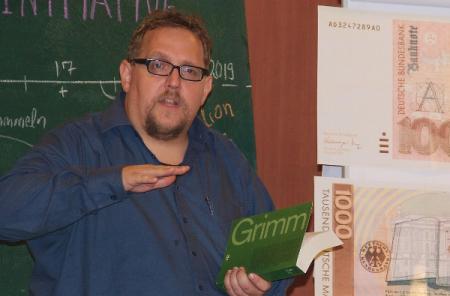Democracy International: What did you think and feel on 24 June 2016 after you had learned that the „leave campaign“ had won the „Brexit“ referendum and that the UK hence is going to leave the European Union?
Gerhard Schuster: I was a little upset because I did not expect it. We had just started to establish contacts in the United Kingdom for our plan to launch a European Citizens' Initiative. We have informed the Members of the House of Commons and already received first feedback. I believe that a positive democratic project – i.e. initiatives to create something and not just say “no” to something – can have a positive effect on the integration of Europe. If the UK is now no longer part of the European Union, this no longer works. But then my next thought was, with or without Brexit, the objective is to find new ways for Europe – for example those suggested with the petition of Democracy International „Stand up for a democratic Europe now!“.
In your view, which lessons must be learned from the “Brexit referendum”?
The first thing that needs to be understood is, that there are certain conditions for the formation of the “democratic will”. We might not expect this from politicians, who want to use a referendum (plebiscite) for their own interests, but we do indeed from the commentators in the media and, of course, from the people themselves. A referendum or a plebiscite launched top down has nothing to do with real direct democracy. Referendums from the top serve partial interests or the preservation of power. Accordingly, a polarized and emotional campaign takes place. Therefore, it should always be clear that referendums should only take place when they are launched by an initiative bottom up, and if there are clear rules and sufficient time allowed for the process. Also, the mass media need to be reminded of their duty to serve the debate by balancing the pros and cons. Then the general will (volonté générale) can form itself.
In case there was a second referendum on EU membership in the UK, how should this referendum look like?
I would not be unhappy, if a second referendum took place: there is an official petition going on for a second referendum that has collected more than four million signatures already. This is a step in the direction of a real popular legislation process initiated by the people themselves. The Brexit referendum also shows that direct democracy needs a long-term process of practicing:
At first, there were a lot of emotions involved; then, after the polling stations had closed, many people took a step back and began to think again. For example, Google searches on what Brexit actually means increased significantly. A second referendum could now perhaps proceed in a more relaxed way.
More generally speaking, it also needs to be discussed what an adequate design of direct democracy should look like. An important aspect is the issue of complementary democracy where direct and representative democracy work together as two independent pillars and not saddling each other with the responsibility.
Being the Senior Campaign Manager of the Europe 2019 Credit Initiative you are currently working on a new approach to Money and the Economy that is based on need and committed to the common good. Is there a connection between this new approach to the economy and democracy?
In a certain respect, yes. We must understand that we, the citizens, are more and more responsible for our social circumstances - which also applies to the economy.
The economy and the monetary and banking system must have a democratic basis, for which we are collectively responsible. We need new economic laws. With our European citizens' initiative, we are making a concrete proposal for the ECB Statute.
The ECB is part of European law. So this initiative is a democratic impulse. The second point however is: Who actually holds “sovereignty” in the field of the economy. Today it is the shareholder, the owner. The people, who are legitimate sovereign for lawmaking and electing their representatives, are not in charge here. The question needs to be answered: Who is sovereign in the economy. It needs a kind of "self-government" to find out what is necessary out of entrepreneurial competence.
What’s your prediction for the future? How will the EU look like in 2036?
That depends on what we do. What are our ideas for developing the EU? We cannot wait for someone to do it for us. Europe needs a constitution. The fact that the constitutional process was stopped in 2005 is the cause of many problems today. The question of the identity of Europe as a community "sui generis" is not answered yet. A new “Constitutional Convention” must now be set up, which is open for participation of all people with ideas – a "Citizens’ Convention". Whether a constructive process will originate out of such a convention will also depend on how many people really want to realize it. How the EU will look in 2036, depends on how many people will wake up not only to say no but to think along new lines and how many people will support democratic initiatives for new approaches.
www.creditinitiative.eu
www.facebook.com/credit.initiative
Interview by Cora Pfafferott

